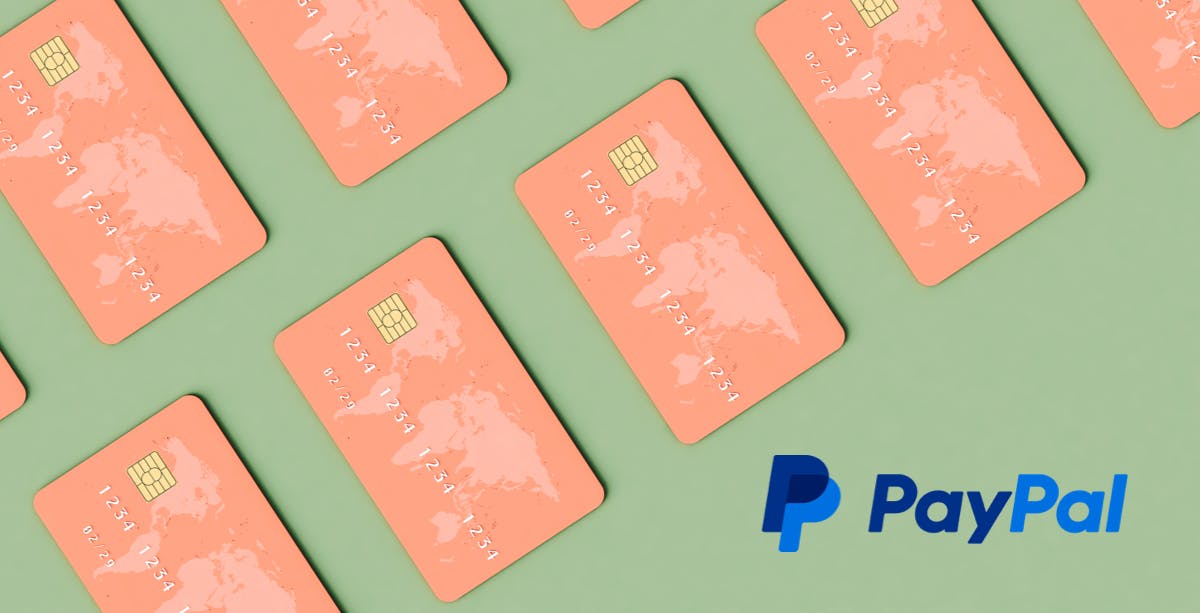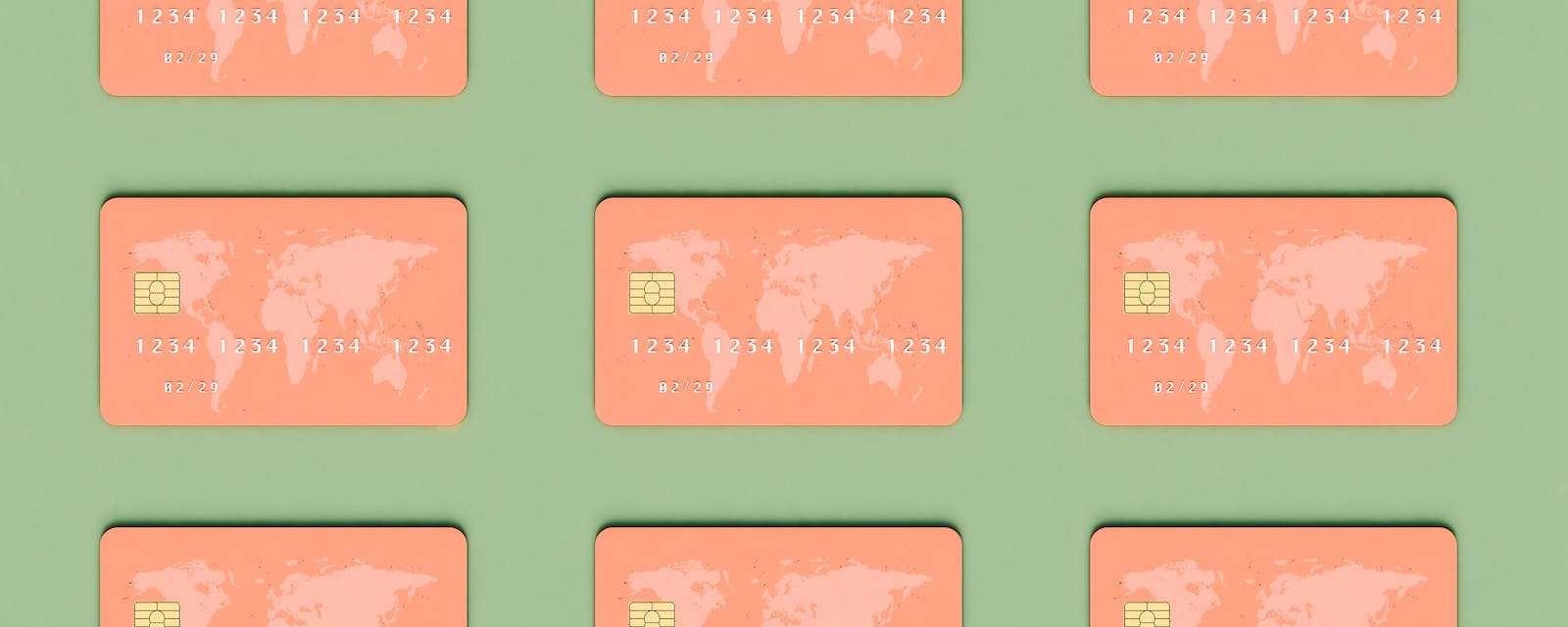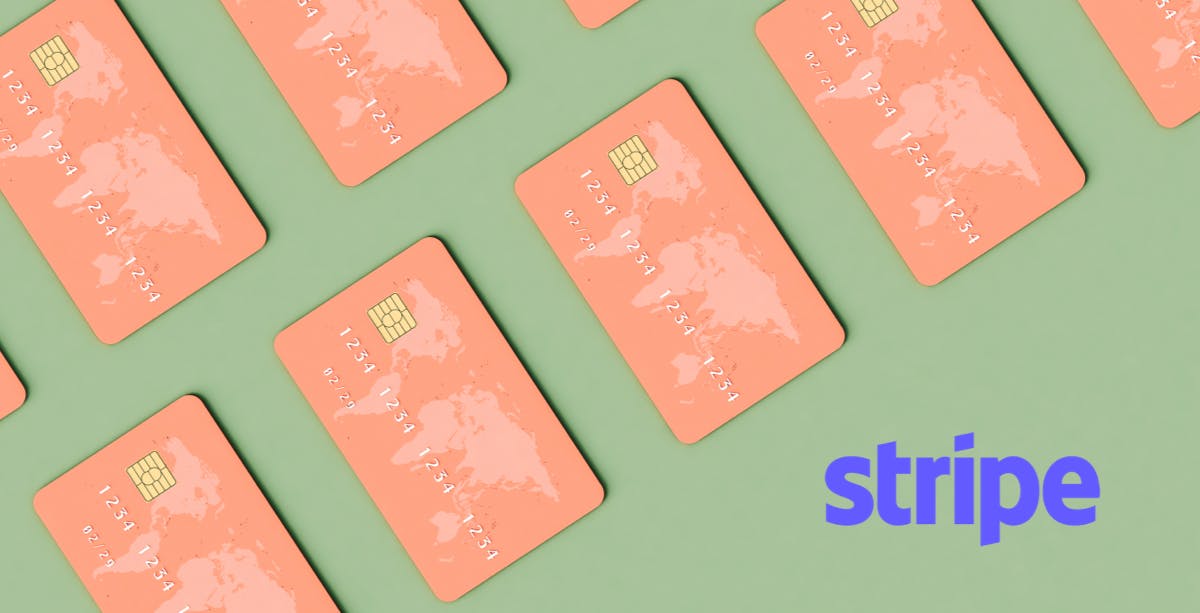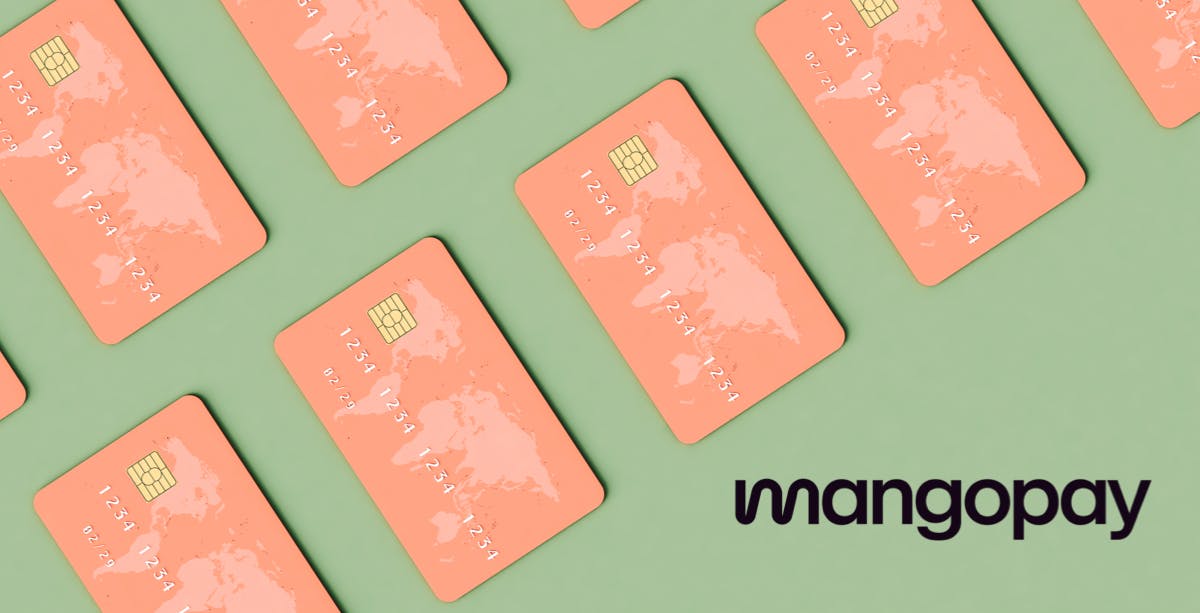PayPal marketplace payments – overview of PayPal for Marketplaces key features
PayPal for Marketplaces is a widely used marketplace payment provider. Explore its features, fees, available countries, currencies, payouts, and more.
Published on
Last updated on

As a marketplace founder, the marketplace payments provider you choose is important to the success of your business. It affects how you attract customers and pay sellers, ultimately impacting transaction flow in your marketplace.
While some praise PayPal's versatility, there's more to the story. While working with PayPal and talking to our customers, we've come across some unclarity about their marketplace offering, country limitations, and availability to early-stage founders.
If you're considering PayPal to power your marketplace payments, it may be a good idea to reach out to them quite early in the process and verify that you qualify as a customer and that all the functionality you need is available in your region.
In this guide, we'll look into PayPal's marketplace key features to help you determine if it's the ideal fit for your business needs. We'll also share some of our first-hand experiences working with PayPal
What's in this article:
- Background information on PayPal: Founders, valuation, competitors, and well-known marketplaces using PayPal.
- PayPal marketplace payments key features: countries, currencies, and payment methods, key payment flow features, security, and more.
- PayPal pricing and some notes from our experience building a PayPal integration and interacting with their support.
PayPal is a leading online payment processor that facilitates transactions between parties via online fund transfers. Although it started as a mobile security company, it later shifted to creating digital payment solutions.
In 1998, Max Levchin, Peter Thiel, and Luke Nosek founded Confinity. In 2000, they merged it with X.com (founded by Elon Musk) to form PayPal. The company went public in 2002 before eBay acquired it in the same year for $1.5 billion.
PayPal later spun off from eBay in 2015 to become an independent company again.
Here are some other key metrics about PayPal:
- As of the end of 2023, PayPal had 426 million active accounts across over 200 markets globally.
- In 2023, the company processed $1.53 trillion in total payment volume.
- PayPal's revenue in 2023 was $25.6 billion, with a net income of $2.1 billion.
- As of March 2024, PayPal has a market cap of $64.39 Billion
- Some of PayPal's well-known early investors include Peter Thiel, Elon Musk, and Goldman Sachs.
- PayPal has spent over $14.4B on acquisitions of over 26 companies, including Braintree, Xoom, iZettle, and Honey.
PayPal offers a tailored marketplace payment called PayPal Commerce Platform. In the US, Braintree Marketplace is also available – a PayPal service since PayPal acquired Braintree in 2013. However, some users have reported that the service for marketplaces may be shutting down.
(The solution was formerly PayPal for Marketplaces – and sometimes, their documentation and website refer to the solution as “PayPal Multiparty Payments” and “Paypal Complete Payments Platform” without clearly specifying the official name of the product. In the rest of this article, we’ll only use “PayPal”, but the information discussed is specific to their marketplace offering).
PayPal covers the essential needs of a marketplace business, including checkout, payment processing, fraud protection, payout to sellers, and more.
In this article, we’ll look into each of these features in more detail.
There are hundreds of online payment providers out there, which means there are many competing solutions. In the specific area of online marketplaces, PayPal's main competitors include:
- Stripe Connect (here's our complete overview of Stripe Connect's marketplace payments)
- Mangopay (overview of Mangopay's marketplace payments)
- Adyen for Platforms (overview of Adyen for Platforms' marketplace payments)
- Trustap (overview of Trustap's marketplace payments)
- Ryft (overview of Ryft's marketplace payments)
- Fondy (overview of Fondy's marketplace payments)
- Mollie (overview of Mollie's marketplace payments)
Several well-known marketplaces integrate PayPal marketplace payments to handle their transactions. Some notable ones are:
- eBay (Product retail marketplace such as electronics, cars, clothes, and collectibles).
- Poshmark (Fashion resale marketplace).
- StockX (Stock market for sneakers, streetwear, and electronics, and collectibles).
Although Stripe Connect is the only marketplace payment provider available out of the box in Sharetribe’s marketplace builder, you can build a custom integration with any third-party payment provider you want.
Here's our article comparing marketplace payment providers.
Every marketplace payment provider has its strengths and weaknesses. PayPal offers all the essential marketplace functionality and supports over 200 countries – but only 24 currencies. Its pricing structure is rather complicated and on the more expensive end. Finally, many have found PayPal lacking in ease of integration and quality of customer support.
Let’s go through PayPal’s key features in more detail.
The countries your payment service supports must align with your locations and those of your buyers. You must also consider the payout countries, which are the locations where your marketplace can send money, i.e., where your sellers can be located.
Online payment regulations vary significantly by country. This means some payment provider features may be specific to each country. As a result, supported countries and payout regions may not align.
Although PayPal was among the first FinTech companies to enable cross-border payments, their service is still limited in some countries. For instance, PayPal has a long list of supported countries but allows payouts to a more limited list.
PayPal has extensive global coverage, supporting over 200 countries across North America, South America, Europe, Asia, Africa, and Oceania. These are the countries where the customer can be located.
However, PayPal supports payouts to a more limited list. You may be able to onboard a user as a seller, but they may not be able to receive payments from you or withdraw money from their PayPal accounts. To find out whether selling is supported in your country:
- Open this page.
- Select your country from the list.
- Scroll down to click a "Fees" link at the bottom footer of the page.
- Check the options that are available in your country and the associated fees.
Generally, PayPal offers four different levels of support in the supported countries. These include:
- Send only: Marketplace founders can send payouts from this country, but sellers cannot receive or withdraw money (e.g., in many African countries).
- Receive and withdraw: Marketplace owners cannot send payouts from this country, but sellers can receive and withdraw money (e.g., India).
- Send, receive, and withdraw: This is the most common level of support. Founders can send payouts, and sellers can receive and withdraw money, e.g., UAE and Jordan.
- Send, receive, and withdraw in local currency: Same as above, but also allows transactions in the local currency, e.g., Philippines and New Zealand.
- Fully localized: All the above, plus the PayPal app, are available in the local language, e.g., in the United States, Canada, and the UK.
However, we’ve also heard from our customers that truly global marketplaces that want to send payouts to sellers in multiple countries have faced challenges that have required considerable additional effort in building the integration.
Large currency support allows you to serve a global user base—buyers and sellers from different countries can transact seamlessly without the hassle of currency conversions. Plus, more sellers can maintain balances and receive payouts in their preferred currencies, minimizing the need for additional currency exchanges and associated fees.
As to currency support, PayPal Marketplaces falls in the middle scale among its competitors.
While some competitors like Mangopay support 15 currencies and Stripe supports over 135 currencies, PayPal offers support for 24 currencies for payments and balances.
This includes major global currencies such as:
- U.S. Dollar (USD)
- Euro (EUR)
- British Pound (GBP)
- Canadian Dollar (CAD)
- Australian Dollar (AUD)
- Japanese Yen (JPY)
- Chinese Yuan Renminbi (CNY)
- Brazilian Real (BRL)
In addition to these major currencies, PayPal Marketplaces also supports several other currencies, including the Swiss Franc (CHF), Danish Krone (DKK), Swedish Krona (SEK), Norwegian Krone (NOK), and more.
Paypal accepts a wide range of popular payment methods, including:
- Direct-to-debit/credit card payouts
- Prepaid payouts or eGift cards
- Digital wallets (e.g., PayPal, Venmo)
PayPal also supports payment methods tailored to local preferences in different regions, for instance:
- iDEAL in the Netherlands
- Bancontact in Belgium
When choosing a payment processor for your marketplace, a dedicated split payment feature is a must.
Split payments automatically divide a single buyer's payment into multiple portions. This feature is crucial for commission-based marketplaces, where you allocate a portion to the seller and retain your commission.
PayPal offers a feature called Platform fee to achieve the split payments functionality.
PayPal automatically deducts their processing fee when the money is delivered from the buyer to the seller. Something to note here is that PayPal charges the seller (unlike Stripe, for example, which charges the platform).
For example, if the transaction's total size is $100 and PayPal's fee is 3%, the seller will receive $97 in their PayPal account, and PayPal keeps $3. This is something to keep in mind when you set your own commission rate and communicate your pricing to your sellers.
Escrow allows a third-party account to hold and regulate the payment of funds until both parties are satisfied. It protects buyers and sellers and ensures that sellers get payments only after meeting the agreed-upon terms. Companies like Upwork and Etsy protect their buyers and sellers using escrow features.
While PayPal does not offer a dedicated escrow service, its Delayed disbursement feature acts like a pseudo-escrow service that allows for upt 28 delay in payout.
Here's how it works:
- The buyer makes a purchase, and PayPal holds the funds (for up to 28 days) in a temporary account.
- The seller ships the goods or delivers the service.
- The buyer has a predetermined timeframe to inspect the goods or service and raise any issues or disputes.
- If there are no issues, PayPal automatically releases the funds to the seller's account.
- If there is a dispute, PayPal will mediate to try to resolve the issue.
However, the Delayed disbursement feature may not be a perfect substitute for a true escrow service, and 28 days might not be a long-enough delay for some marketplace concepts. In terms of escrow, the strongest payment provider is Mangopay: they offer a full escrow feature with unlimited duration.
Subscription payments (also known as recurring payments) allow you to automatically charge customers at regular intervals—like monthly, quarterly, or annually—for continued access to the service or product.
PayPal has a subscription payment feature available for multi-party payments. Once set up, the system automatically charges the customer's preferred payment method (e.g., credit card, PayPal balance) on the specified billing dates without manual invoicing and payment collection.
Marketplaces can use PayPal Subscriptions API to integrate PayPal's subscription payment feature. This API provides a set of endpoints and functionality to create and manage subscription plans, activate and cancel subscriptions, handle billing cycles, and process payments.
The API supports several programming languages and is easily integrated into the marketplace's existing infrastructure.
Some of Paypal’s marketplace subscription features include:
- Flexible Plans: Create & manage subscription plans with various pricing, billing cycles, and trials.
- Automated Billing: Subscriptions are automatically billed and renewed for consistent revenue.
- Payment Updates: Customers can update payment methods without interrupting subscriptions.
- Easy Plan Changes: buyers can upgrade, downgrade, or cancel subscriptions with automatic billing adjustments.
- Detailed Reporting: Get insights on subscriber metrics (sign-ups, churn, revenue) for informed decisions.
With PayPal's subscription payment feature, marketplace founders can offer a convenient and scalable billing solution for their subscription-based products or services.
However, PayPal’s documentation doesn’t clearly state whether it's possible to charge your platform fee with subscription payments. It’s a good idea to double-check with PayPal’s support what’s available for your country and business model, specifically.
Since you'll be handling sensitive buyer information, choosing a secure payment system is crucial. PayPal offers a multi-layered security approach to protect both you and your customers.
Here are their key security features:
- Data Encryption: They encrypt all sensitive data, like payment information, using industry-standard protocols during transmission and storage.
- Fraud Monitoring: PayPal employs advanced fraud detection systems that monitor transactions in real-time, using machine learning and pattern recognition to identify and block suspicious activities.
- Seller Protection: PayPal offers seller protection policies that can safeguard marketplace sellers against chargebacks and fraudulent buyer claims, providing an additional layer of security.
- Two-Factor Authentication: PayPal supports two-factor authentication (2FA) for an extra level of account security, requiring a secondary form of verification beyond just a password.
- Bug Bounty Program: They have a bug bounty program that rewards ethical hackers for identifying and reporting vulnerabilities to improve their security.
On the other hand, regulatory compliance is also a top priority. Some key compliance measures for marketplaces include:
- PCI DSS Compliance: PayPal fully complies with the Payment Card Industry Data Security Standard (PCI DSS), which ensures the secure handling of cardholder data.
- PSD2 and SCA: PayPal meets the requirements of the revised Payment Services Directive (PSD2) and Strong Customer Authentication (SCA). They implement 3D Secure 2 (3DS2) for eligible transactions to enhance security.
- KYC and AML: PayPal has Know Your Customer (KYC) and Anti-Money Laundering (AML) processes in place to verify the identities of marketplace participants and prevent financial crimes.
- Data Privacy: PayPal complies with relevant data privacy regulations, such as the General Data Protection Regulation (GDPR) in the European Union, to ensure the proper handling and protection of personal data.
- Localized Compliance: PayPal maintains compliance with local regulations and requirements in the countries and regions where its marketplace services are offered.
Overall, you can depend on these strong security and compliance measures without needing to build and maintain them independently. This can save significant time and resources while ensuring a secure and compliant payment environment for your users.
High-volume sellers on your platform may need to report their income to tax authorities. This can become administratively complex when dealing with many small transactions.
In the US, PayPal offers various tools and features to assist marketplace operators in meeting their tax reporting obligations.
PayPal issues Form 1099-K to sellers who have received payments above certain thresholds, such as $20,000 in gross payments and 200 or more transactions in the United States.
This form reports the total gross payments received by the seller during the calendar year.
Additionally, PayPal provides tax calculation services that can help marketplace operators calculate and collect applicable taxes on transactions, such as sales tax or value-added tax. Setting up these services in the marketplace's checkout process ensures compliance with local tax regulations.
Also, you can set up these types of tax rates:
- US tax rates by state or zip code.
- Canadian tax rates by province.
- International sales tax rates by country or jurisdiction.
PayPal's approach to pricing for marketplace payments is complex, with the fees varying based on several factors. While they typically do not charge a specific integration fee, their transaction fees can range from 2% to 5% for each processed payment. When the money is paid out to the platform’s bank account, a separate payout fee is charged.
The amount of PayPal's transaction fee depends on three main elements:
- Seller's country
- Buyer's country
- Seller's monthly sales volume.
Generally, domestic purchases within the same country have lower fees than international transactions. The standard transaction fee for US-based sellers for PayPal Checkout is 3.49% plus a fixed fee. However, the fixed fee varies depending on the currency received.
For international transactions (involving currency conversion), there’s an additional percentage-based fee of 1.50%.
PayPal's fees for domestic purchases are publicly available for merchants in the following countries:
Merchants from other countries and merchants who want to sell internationally can see their fees by logging in to their PayPal accounts and opening this page. The final payment processing fee will be shown in the automatic receipt sent to the seller via email after the purchase.
Beyond base transaction fees, PayPal offers optional services with monthly and per-transaction costs.
While PayPal offers a convenient payment solution, its fees can be higher than those of some competitors.
Unlike Stripe, which has a transparent fee structure, PayPal's base transaction fee is slightly higher. International transactions with PayPal are also more expensive, at a 1.50% fee compared to Stripe's 1%.
One final aspect to consider when integrating a 3rd party payment gateway is the quality of their support and documentation.
PayPal has gained notoriety as a difficult platform to integrate. At Sharetribe, we can confirm this from our experience as our previous product, Sharetribe Go, used to offer PayPal integration. (Nowadays, Sharetribe offers Stripe out of the box, but you can build a custom integration to any other third-party payment provider).
Generally, our developers were faced with several surprises in the development process, such as new undocumented error cases and other unexpected situations we needed to deal with.
Furthermore, it's extremely difficult to find sufficient information about PayPal's offering and pricing before you're committed to building the integration. Their publicly available resources don’t even make it clear whether their marketplace payment feature is called “PayPal for Marketplaces”, “PayPal Commerce Platform”, or “PayPal Complete Payments Platform for Marketplaces and Platforms” (and in their documentation, their marketplace offering is discussed under the heading “Multiparty Payments”).
The contrast to the clarity of documentation offered by payment providers like Stripe is striking. On the other hand, PayPal is such a well-known player that it might be easier to find a developer who has previous experience working with PayPal.
PayPal offers various integration options and comprehensive documentation to guide the process. They also have APIs and SDKs available for different programming languages and platforms, allowing developers to integrate PayPal seamlessly into their existing marketplace infrastructure.
While PayPal offers various support channels, such as email, phone, and online forums, the quality and timeliness of the support can vary depending on the specific issue. Some have reported challenges in receiving timely and effective support, while others claim they receive a quick response.
Finally, some of our customers have reported that after communicating with PayPal, they discovered their transaction volume was too low to qualify as a PayPal customer. Publicly, PayPal doesn't state any volume restrictions. However, if you're considering PayPal, it could be a good idea to contact them quite early in the process and ensure the integration is available to you.
Overall, PayPal's integration options and resources offer a solid foundation for marketplaces, but the quality of the integration experience and support vary.
PayPal is a powerhouse in online payments, offering a compelling feature set for marketplaces. Additionally, PaPal accepts many popular payment methods, including digital wallets and even cryptocurrencies (for US customers).
For commission-based marketplaces, PayPal offers split payments through their Payouts feature. This allows disbursing funds to sellers based on percentages. While not a dedicated escrow service, their Delayed Payments feature can substitute by holding funds until buyer confirmation.
Subscription billing is possible through PayPal's subscription payment feature. Security and compliance are top priorities, with measures and adherence to industry standards ensuring data protection and regulatory compliance. US tax reporting is also easier with tools like Form 1099-K issuance and tax calculation services.
However, there are some trade-offs to consider.
Paypal only supports 24 currencies, while Stripe supports 135. PayPal’s transaction fees can be slightly higher than competitors, especially for international transactions. The fee structure is rather complex, with additional optional services incurring extra costs.
Integration, particularly for custom marketplaces, can be complex and time-consuming despite the various resources and pre-built plugins offered. Additionally, support quality can vary depending on the specific issue and account status.
More articles for you

Marketplace payments: The complete guide
Marketplace payments are very complex. This guide helps you list your feature requirements and compare and choose the best marketplace payment provider for you. (Yes, there's a comparison table!)

Stripe marketplace payments – overview of Stripe Connect key features
Stripe Connect key features, fees, security compliance, integration and more.

Mangopay marketplace payments – overview of key features
Are you considering Mangopay to power your marketplace payments? Here's a detailed overview of Mangopay’s marketplace payment features.
Start your 14-day free trial
Create a marketplace today!
- Launch quickly, without coding
- Extend infinitely
- Scale to any size
No credit card required

